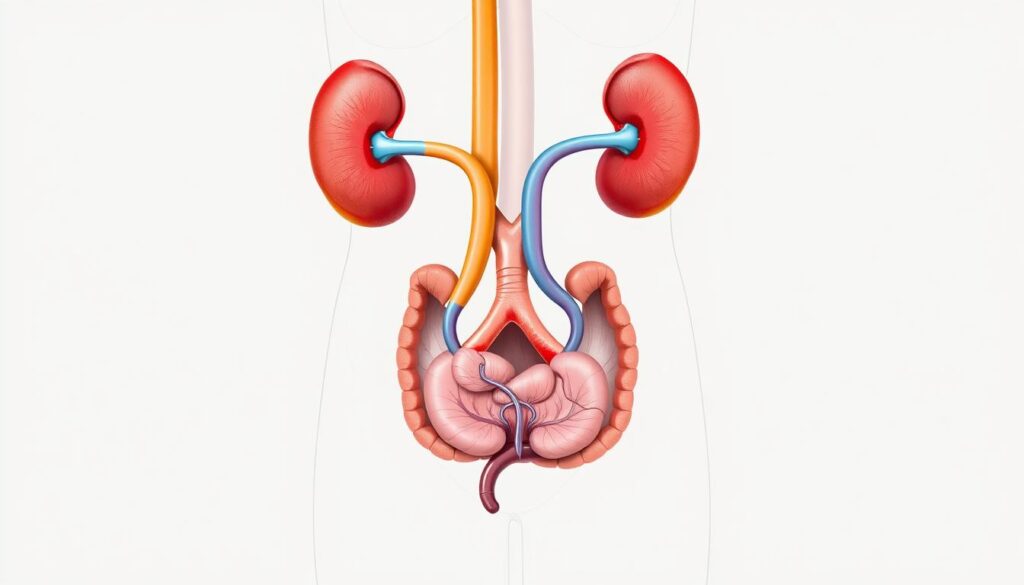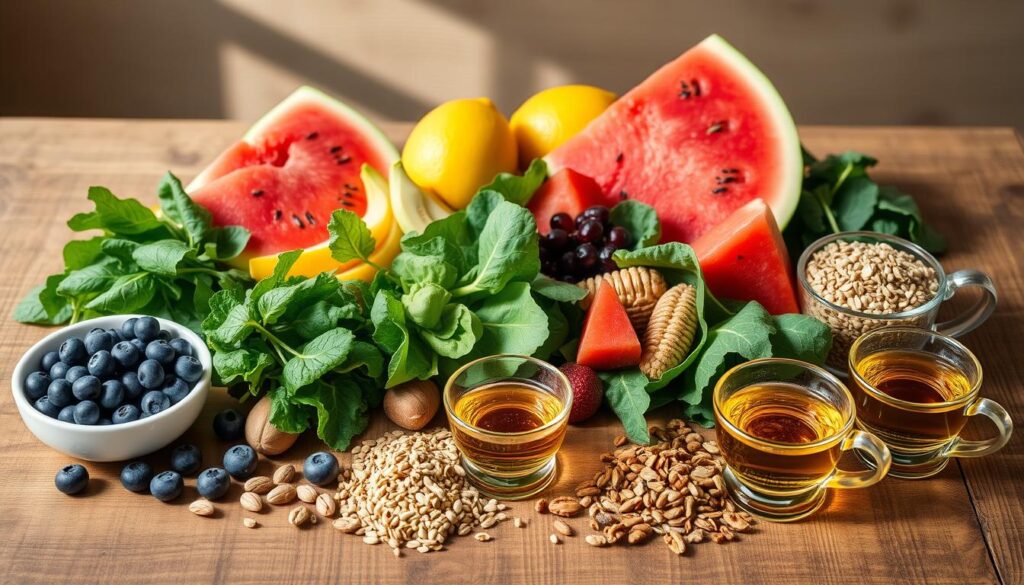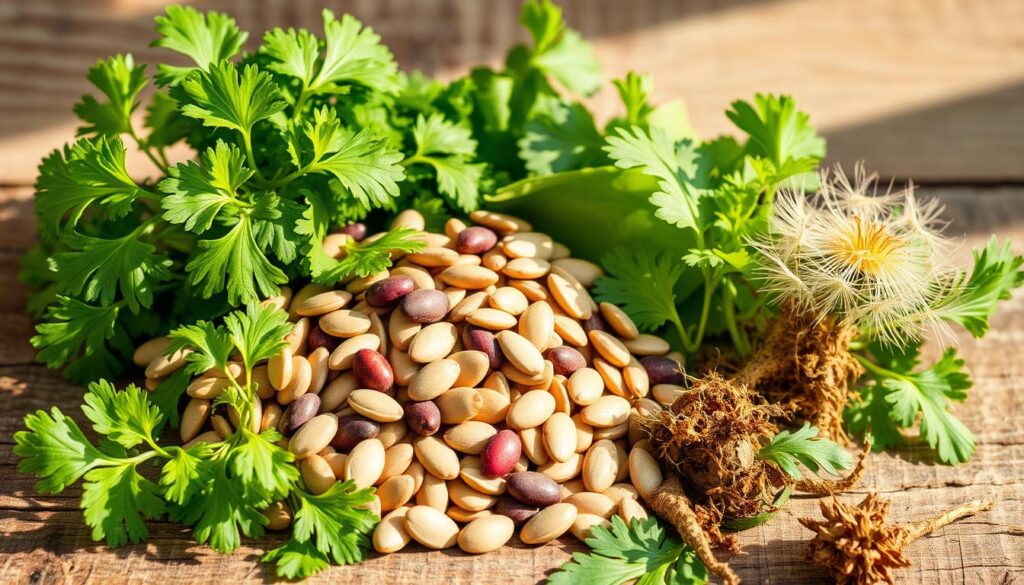Maintaining optimal bladder health is essential for overall well-being. On average, adults pass approximately 1.5 quarts of urine through the bladder daily. As people age, the bladder tissue can become less elastic, leading to increased urination frequency. Weakened bladder and pelvic floor muscles can also cause difficulty fully emptying the bladder and result in urine leakage. This article explores natural methods to improve urinary flow and maintain a healthy bladder function.
Key Takeaways
- Maintaining proper hydration and fluid balance is crucial for bladder health.
- Pelvic floor exercises, such as Kegel exercises, can strengthen the muscles responsible for urinary control.
- Certain dietary changes, including limiting caffeine and alcohol intake, can help reduce bladder irritation.
- Natural supplements and herbal remedies may provide additional support for urinary function.
- Lifestyle modifications, including regular physical activity and stress management, can positively impact bladder health.
Understanding Bladder Health and Urinary Function
Maintaining a healthy urinary system is essential for overall well-being. The urinary system consists of the kidneys, ureters, bladder, and urethra, all working together to filter waste, balance fluids, and eliminate urine from the body.
How the Urinary System Works
The kidneys filter about 120 to 150 quarts of blood daily, producing 1 to 2 quarts of urine. A normal bladder can hold 1.5 to 2 cups of urine. Children produce less urine than adults, and it’s recommended to drink six to eight 8-ounce glasses of liquid per day, with at least half being water, for a healthy urinary tract.
Common Causes of Poor Urinary Flow
Poor urinary flow can result from various factors, including an enlarged prostate, urinary tract infections, and neurological disorders. Certain medications, excess weight, smoking, and physical inactivity can also contribute to bladder control problems.
Signs of Bladder Health Issues
Signs of bladder health issues may include frequent urination, urgency, inability to hold urine, cloudy urine, blood in urine, and pain during urination. Addressing these issues promptly can help maintain optimal bladder function and overall urinary health.
To learn more about improving your urinary flow and bladder health, visit our contact page to connect with our knowledgeable staff.

Understanding the intricacies of the urinary system and recognizing the signs of potential issues is the first step in maintaining a healthy bladder and promoting optimal urinary function.
Essential Dietary Changes for Better Bladder Health
Maintaining a bladder-friendly diet is crucial for promoting optimal urinary function and reducing the risk of various bladder-related issues. By making strategic dietary modifications, individuals can support their overall bladder health and alleviate common problems like overactive bladder (OAB), urinary incontinence, and even bladder cancer.
One important step is to identify and limit consumption of potential bladder irritants. This includes reducing or eliminating caffeinated beverages, alcoholic drinks, spicy foods, and artificial sweeteners, all of which can exacerbate bladder symptoms. Instead, focus on incorporating more fiber-rich foods, fruits, and vegetables into your daily meals.
Fiber-rich options like lentils, beans, raspberries, artichoke, barley, bran, oats, and almonds can help prevent constipation and alleviate pressure on the bladder. Fruits and vegetables such as bananas, apples, grapes, coconut, watermelon, strawberries, blackberries, asparagus, broccoli, cucumbers, kale, carrots, celery, lettuce, and peppers are also excellent choices for supporting bladder health.
| Bladder-Friendly Foods | Bladder Irritants |
|---|---|
|
|
In addition to adjusting your dietary intake, it’s essential to pay attention to your overall fluid consumption, especially before bedtime. Moderating fluid intake can help manage urinary frequency and urgency, while ensuring adequate hydration throughout the day supports bladder function.
By making these essential dietary changes and incorporating bladder-friendly foods, individuals can take proactive steps to improve their overall urinary health and potentially alleviate various bladder-related issues.

How to Improve Urinary Flow Naturally
Maintaining a healthy bladder and ensuring optimal urinary flow requires adopting natural techniques that can help retrain and strengthen the bladder. From bladder training exercises to scheduled urination methods, there are several effective ways to improve urine flow and support overall bladder health.
Bladder Training Techniques
Bladder training involves gradually increasing the time between urinations to improve bladder control and capacity. This can be achieved through techniques such as tapping the navel region, placing a hand in cold water, or gently massaging the lower stomach to stimulate the urge to urinate. With consistent practice, the bladder can be trained to hold more urine and improve overall urinary function.
Scheduled Urination Methods
Scheduled urination encourages using the bathroom at set times, even without the immediate urge to go. This can help establish a regular bladder routine and prevent the bladder from becoming too full, leading to better urinary flow. Factors like hydration level, bladder fullness, and fluid type can influence how soon a person urinates after drinking water.
Double-Void Technique
The double-void technique involves urinating, waiting 30 seconds, and then attempting to urinate again. This method helps ensure complete bladder emptying, which can be particularly beneficial for individuals with neurogenic bladder or other conditions that make it difficult to sense when the bladder is full. Proper bladder emptying can alleviate symptoms of urinary retention and improve overall urinary health.

By incorporating these natural techniques into your daily routine, you can take proactive steps to improve urinary flow and maintain a healthy bladder. Remember, if you experience persistent or severe urinary issues, it’s essential to seek professional medical attention to address any underlying conditions.
Powerful Pelvic Floor Exercises for Urinary Health
Maintaining a strong pelvic floor is crucial for optimal bladder control and urinary function. Kegel exercises, also known as pelvic floor strengthening exercises, can be a powerful tool to improve urinary flow and alleviate various bladder health issues.
Kegel exercises involve tightening and releasing the muscles responsible for controlling urine flow. To perform a Kegel, simply contract the pelvic floor muscles for 10 seconds, then relax for 3 seconds. Repeat this sequence 10 times, aiming for three sets per day. Over time, this routine can significantly enhance bladder control and reduce the risk of urinary incontinence.
To further amplify the benefits of Kegel exercises, consider incorporating biofeedback techniques or using vaginal weights. Biofeedback involves using specialized devices to provide real-time feedback on the strength and coordination of your pelvic floor muscles, helping you refine your technique. Vaginal weights, when used under the guidance of a healthcare professional, can add an extra challenge to Kegel exercises, leading to even greater muscular development.
Consistent practice of pelvic floor exercises is key to achieving lasting improvements in urinary health. Allocate time each day to perform Kegels, and be patient as it may take 4-6 weeks to start noticing tangible results. Maintain a long-term commitment to these exercises to prevent the recurrence of incontinence or other bladder-related problems.
Remember, if you’re unsure about the proper way to perform Kegel exercises, consult a healthcare provider or a specialized pelvic floor physical therapist. They can guide you through the correct technique and ensure you’re targeting the right muscles for maximum effectiveness.
Additional Pelvic Floor Exercises
Alongside Kegel exercises, consider incorporating the following activities to further strengthen your pelvic floor:
- Bridge pose: Hold this position for 10-15 seconds, engaging the pelvic floor muscles.
- Squats: Perform 10-15 squats while focusing on contracting the pelvic floor.
- Pelvic tilts: Repeat this exercise 10-15 times per session.
- Bird-dog: This exercise activates multiple muscle groups, including the pelvic floor.
Aim to incorporate these exercises into your routine 2-3 times per week for optimal results. Consistent practice of pelvic floor strengthening exercises can significantly improve urinary function and overall bladder health.

Herbal Remedies and Natural Supplements
For individuals seeking natural solutions to improve urinary flow and bladder health, a wide array of herbal remedies and dietary supplements have shown promising results. Traditional Chinese medicine (TCM) in particular has a rich history of utilizing various botanicals to address urinary tract issues.
Traditional Chinese Medicine Options
One popular TCM formula is Gosha-jinki-gan, a blend of 10 herbs that has been found to reduce bathroom visits when taken daily for 8 weeks. Another TCM remedy, Hachi-mi-jio-gan, containing eight natural ingredients, has demonstrated the ability to ease bladder muscle contractions. Herbs like Buchu, Cleavers, and Horsetail are also believed to soothe the bladder and provide support for urinary health.
Evidence-Based Natural Supplements
Beyond traditional Chinese remedies, various natural supplements have garnered attention for their potential to improve urinary flow and bladder function. Ganoderma lucidum, a mushroom used in Chinese medicine, has shown the ability to reduce the urge to urinate after 8 weeks of use. Saw palmetto, derived from the berries of a palm tree, may help ease overactive bladder symptoms in both men and women.
Safe Usage Guidelines
While herbal remedies and natural supplements can be appealing alternatives, it’s crucial to exercise caution and consult with a healthcare provider before incorporating them into your routine. Some natural options, such as capsaicin or certain herbs, may carry the risk of side effects or interactions with medications. Always prioritize your safety and follow recommended dosage guidelines when exploring these natural solutions for urinary health.

“About 75% of people with an overactive bladder have tried complementary treatments at some point, according to the CDC.”
Lifestyle Modifications for Optimal Bladder Function
Maintaining a healthy lifestyle is crucial for supporting optimal bladder function. Quitting smoking, managing chronic conditions, and maintaining a healthy weight can all contribute to better urine flow and bladder control. Regular exercise, particularly activities that strengthen the core muscles, can also help improve bladder function.
Quitting smoking is a vital step in improving bladder health. Smoking can irritate the bladder and lead to increased coughing, which can exacerbate urinary incontinence. By kicking the habit, individuals may experience a reduction in coughing-induced leakage and improved overall bladder control.
Managing chronic conditions like diabetes and Parkinson’s disease is also essential for maintaining healthy bladder function. These conditions can directly impact the nerves and muscles responsible for bladder control, so proactive management is key. Working closely with healthcare providers to effectively manage such conditions can help support better urinary flow and bladder health.
Maintaining a healthy weight is another crucial lifestyle change for optimal bladder function. Excess weight can put additional pressure on the bladder and pelvic muscles, leading to issues like urinary incontinence. By achieving and maintaining a healthy weight, individuals can alleviate this pressure and improve their overall bladder control.
- Quit smoking to reduce bladder irritation and coughing-induced leakage.
- Manage chronic conditions like diabetes and Parkinson’s disease to support healthy bladder function.
- Maintain a healthy weight to reduce pressure on the bladder and pelvic muscles.
- Engage in regular exercise, especially activities that strengthen the core muscles, to support better bladder control.
By making these lifestyle modifications, individuals can take proactive steps to improve their bladder health and enjoy better urinary flow and control. Remember, a holistic approach to bladder health is key, and these lifestyle changes can make a significant difference in overall bladder function.
Hydration and Fluid Management Strategies
Proper hydration is essential for maintaining optimal bladder health. However, the timing and type of fluids you consume can have a significant impact on your urinary function. By implementing strategic fluid management, you can support better urinary flow and overall bladder well-being.
Optimal Drinking Schedule
To minimize nighttime urination, it’s recommended to reduce fluid intake in the evening, particularly in the 2-3 hours before bedtime. This allows your body to properly process the fluids and prevent disruptive trips to the bathroom during the night. Aim to drink enough water and other hydrating beverages throughout the day to maintain clear or light yellow urine, but adjust your intake based on your individual needs and any medical conditions you may have.
Types of Beverages to Avoid
- Caffeinated drinks: Coffee, tea, and energy drinks can act as bladder irritants and increase urination frequency.
- Carbonated beverages: The carbonation in soda and sparkling water can also aggravate the bladder, leading to bladder discomfort and poor urine flow.
- Alcoholic drinks: Alcohol has a diuretic effect, which can further exacerbate urinary issues and disrupt your sleep.
By being mindful of your fluid intake and avoiding bladder-irritating beverages, you can support your overall bladder health and improve your urinary function naturally.
“Staying hydrated is crucial for maintaining a healthy urinary system, but the timing and type of fluids you consume can make a significant difference in your bladder function.”
Foods That Support Urinary Health
Maintaining a diet for urinary health can play a crucial role in promoting bladder function and better urine flow. Certain foods are known for their ability to support the urinary system and address common issues like urinary tract infections (UTIs) and Benign Prostatic Hyperplasia (BPH).
Cranberries and blueberries, for instance, are packed with antioxidants that can help make urine more acidic, creating an unfavorable environment for bacteria growth. Pumpkin seeds, on the other hand, are a rich source of nutrients like zinc and fatty acids that have been shown to support prostate health and alleviate BPH symptoms. Additionally, seafood like sea bass is high in omega-3 fatty acids, which possess anti-inflammatory properties beneficial for the urinary system.
When it comes to bladder-friendly nutrition, it’s also important to avoid certain foods that can irritate the bladder, such as coffee, tea, carbonated beverages, acidic foods, and spicy items. Instead, opt for lean proteins like skinless chicken, and limit the intake of high-potassium foods like bananas and potatoes. By making strategic dietary choices, you can help promote better urine flow and overall urinary health.
FAQ
What is the importance of bladder health?
How does the urinary system work?
What are the signs of bladder health issues?
How can dietary changes impact bladder health?
What are some techniques to improve urinary flow?
How can pelvic floor exercises benefit urinary health?
What herbal remedies and natural supplements can support urinary health?
How can lifestyle modifications improve bladder function?
What are the best hydration and fluid management strategies for bladder health?
What foods can promote urinary health?
Source Links
- 15 Tips To Keep Your Bladder Healthy
- How to Make Urinating Easier If You Have BPH
- Bladder control: Lifestyle strategies ease problems
- The Urinary Tract & How It Works – NIDDK
- Bladder Control: Types, Causes & Treatment
- Cxbladder Blog – What Are the Best Foods for Bladder Health?
- Overactive Bladder Diet: What to Eat and What to Avoid
- How to make yourself pee: 9 remedies and techniques
- Home Remedies for Urinary Retention
- 10 natural remedies for enlarged prostate and lifestyle tips
- Kegel exercises – self-care: MedlinePlus Medical Encyclopedia
- Five exercises to strengthen your pelvic floor | UT Health San Antonio MD Anderson Cancer Center
- Herbal Remedies for Overactive Bladder
- Herbs for OAB: Examples and other treatment options
- Overactive bladder: Natural remedies and symptoms
- Natural Remedies for an Overactive Bladder
- Fluid Management – StatPearls – NCBI Bookshelf
- How to help a weak bladder
- Natural remedies for an overactive bladder | Advanced Urology Institute
- Breadcrumb
- Byram Healthcare





